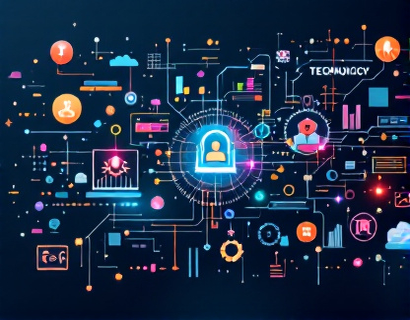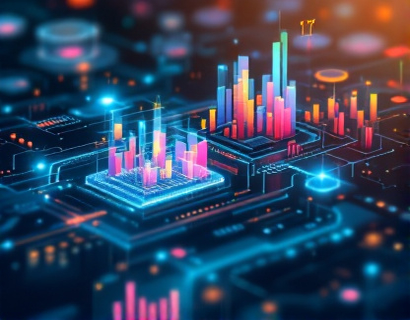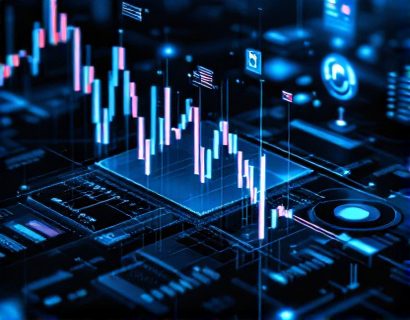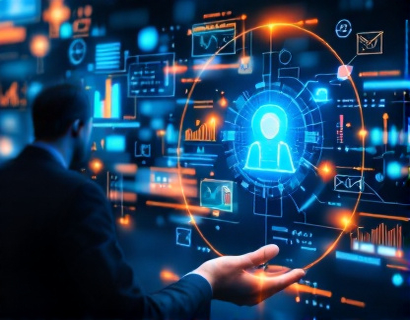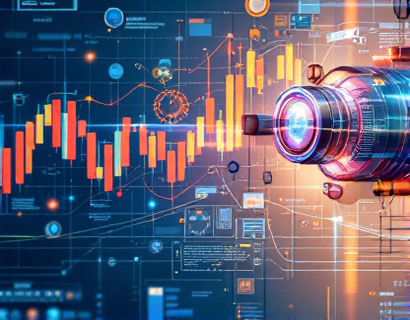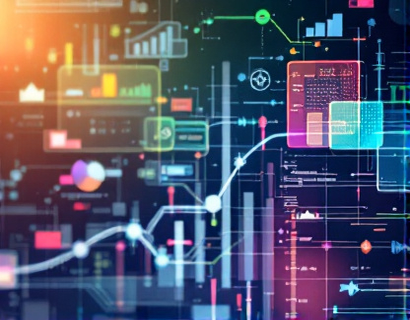Crypto and AI: Transforming App Solutions for Enhanced Digital Experiences
The intersection of cryptocurrency and artificial intelligence (AI) is ushering in a new era of digital innovation, redefining how applications are developed and experienced. This synergy is not just about combining two cutting-edge technologies but about creating a paradigm shift in how we interact with digital solutions. The integration of blockchain and AI is leading to the development of more secure, efficient, and personalized applications, fundamentally transforming the digital landscape.
For tech enthusiasts and early adopters, understanding the impact of this convergence is crucial. The fusion of cryptocurrency and AI is not merely an incremental advancement but a revolutionary step that promises to enhance user interactions, streamline processes, and ensure robust security. This article delves into the transformative power of blockchain and advanced AI algorithms, exploring how these technologies are reshaping the future of digital applications.
Blockchain: The Foundation of Trust and Security
At the core of this transformation is blockchain technology, a decentralized ledger that ensures transparency, immutability, and security. Blockchain's inherent properties make it an ideal foundation for applications that require a high level of trust and security. By eliminating the need for intermediaries, blockchain reduces costs and increases efficiency, making it an attractive solution for various industries.
The decentralized nature of blockchain means that data is distributed across a network of nodes, making it extremely difficult to manipulate or hack. This level of security is paramount in an era where data breaches and cyber threats are increasingly common. For applications that handle sensitive information, such as financial transactions, health records, and personal data, blockchain provides a robust framework to protect user information.
Moreover, blockchain's smart contract functionality automates and enforces contractual obligations without the need for manual intervention. This not only speeds up processes but also reduces the risk of errors and fraud. In the context of app solutions, smart contracts can automate complex workflows, ensuring that transactions are executed precisely as programmed, thereby enhancing reliability and trust.
AI: The Brain Behind the Innovation
Artificial intelligence, on the other hand, brings the element of intelligence and adaptability to digital solutions. AI algorithms can analyze vast amounts of data, learn from patterns, and make predictions or decisions with minimal human intervention. This capability is particularly valuable in creating personalized and dynamic user experiences.
In the realm of app development, AI can be used to enhance various aspects, from user interface design to content recommendation systems. For instance, AI-driven algorithms can analyze user behavior and preferences to tailor the app's functionality and content, making it more relevant and engaging for each individual user. This level of personalization not only improves user satisfaction but also increases retention rates and overall app performance.
Furthermore, AI can significantly improve the efficiency of backend operations. Machine learning models can optimize resource allocation, predict maintenance needs, and automate routine tasks, allowing developers to focus on more strategic and creative aspects of app development. This synergy between blockchain and AI ensures that applications are not only secure and trustworthy but also intelligent and user-centric.
Enhancing User Interactions with Blockchain and AI
The combination of blockchain and AI is particularly potent in enhancing user interactions. By leveraging the security and transparency of blockchain, applications can build a strong foundation of trust, while AI can provide a seamless and personalized user experience.
One of the key areas where this synergy shines is in identity verification and management. Traditional methods of user authentication are often cumbersome and vulnerable to fraud. Blockchain-based identity solutions, combined with AI-driven biometric recognition, offer a secure and convenient way to verify user identities. This not only enhances security but also simplifies the login process, reducing friction and improving user satisfaction.
Another significant application is in the realm of in-app transactions and micro-payments. Blockchain's ability to facilitate fast and secure transactions, coupled with AI's capacity to predict and optimize payment flows, creates a seamless and efficient payment ecosystem. This is particularly beneficial for content creators and developers who rely on micro-transactions to monetize their apps. AI can analyze transaction patterns to prevent fraud and ensure smooth payment processes, while blockchain ensures that transactions are transparent and tamper-proof.
Case Studies: Real-World Applications
To better understand the practical implications of this technology fusion, let's explore a few real-world examples. One notable instance is in the gaming industry, where blockchain and AI are revolutionizing the way games are developed and experienced.
In blockchain-based gaming platforms, players own their in-game assets as non-interchangeable tokens on the blockchain, ensuring true ownership and the ability to trade or sell these assets. AI algorithms can be used to create dynamic game environments, adaptive difficulty levels, and personalized quests, enhancing the gaming experience. For example, AI can analyze player behavior to adjust the game's challenges in real-time, keeping players engaged and motivated.
Another example is in the decentralized finance (DeFi) space, where blockchain and AI are transforming traditional financial services. DeFi platforms leverage smart contracts to provide lending, borrowing, and trading services without intermediaries. AI can optimize these services by analyzing market trends, predicting price movements, and automating trading strategies. This not only increases efficiency but also opens up financial opportunities to a broader audience, including those in underserved regions.
Challenges and Considerations
While the potential of blockchain and AI in app solutions is immense, there are several challenges and considerations that need to be addressed. One of the primary concerns is scalability. Blockchain networks, particularly public ones like Ethereum, can face performance issues due to high transaction volumes. However, advancements in layer 2 solutions and new blockchain protocols are addressing these scalability concerns, making it increasingly viable to integrate AI applications on a large scale.
Another challenge is the regulatory landscape. The intersection of cryptocurrency and AI operates in a relatively uncharted territory, with varying regulations across different jurisdictions. Developers and businesses must navigate these regulations carefully to ensure compliance and avoid legal pitfalls. Staying informed about regulatory developments and engaging with policymakers can help shape a favorable environment for innovation.
Privacy is also a critical consideration. While blockchain's transparency is a strength, it can also raise concerns about data privacy. Implementing privacy-preserving techniques, such as zero-knowledge proofs and homomorphic encryption, can help maintain user privacy while leveraging the benefits of blockchain and AI.
Future Prospects: A Synergistic Future
The future of app solutions lies in the continued integration and advancement of blockchain and AI technologies. As these technologies mature, we can expect even more innovative applications that push the boundaries of what is possible in the digital world.
One exciting area is the development of decentralized AI models, where AI algorithms are trained and run on a blockchain network. This approach not only ensures data privacy and security but also democratizes access to AI capabilities. Developers and users can collaborate on AI projects, sharing resources and insights in a transparent and trustless environment.
Another promising direction is the integration of blockchain with the Internet of Things (IoT). Smart contracts can automate interactions between IoT devices, ensuring secure and efficient communication. AI can analyze data from these devices to provide insights and optimize operations, creating a smarter and more connected world.
In conclusion, the integration of cryptocurrency and AI is not just a technological trend but a transformative force that is reshaping the digital landscape. By combining the security and transparency of blockchain with the intelligence and adaptability of AI, we are witnessing the creation of more secure, efficient, and personalized app solutions. For tech enthusiasts and early adopters, this is an exciting time to explore and contribute to this evolving field.




